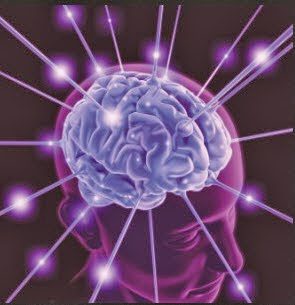Caffeine drinks have gotten a bad rap over the years, and while there’s no doubt that too much soda isn’t good for you, coffee and tea may have positive health benefits. Recent studies show that two to four cups of coffee per day may help to slow normal cognitive decline as well as decreasing the incidence of Alzheimer’s by 30-60%.
These benefits may be due to the caffeine found in coffee and tea, or maybe the antioxidants, but this is one pick-me-up that won’t put you down later. If you prefer tea, several varieties have brain-boosting benefits. Peppermint stimulates the brain and promotes concentration, while lemon balm tea aids in retrieving information stored on the brain. Both green and black teas have properties that help to prevent memory loss.
Eat more fish.
We’ve all heard for years that fish is brain food, and it looks like that’s really true.
Our finny friends are loaded with essential fatty acids like Omega 3s that are necessary for optimal brain function. Some scientists even credit the evolution of human cognitive powers to the introduction of fish to our diets. The best sources of Omega 3s are fatty fish like salmon and light tuna. Aim for two six-ounce servings per week of these fish, plus add other items high in Omega 3s like walnuts and flaxseed oil to your diet.
Reduce stress.
Stress is bad for you in many ways, and one of them is by releasing toxic chemicals into the areas of the brain that control memory. We all have our favorite ways of reducing stress, but if you’ve been using chemical means like alcohol or tranquilizers, maybe it’s time you discovered more natural methods like yoga or meditation.
Try brain teasers.
One strong predictor of cognitive decline is lack of education. If you want to keep your mind sharp, give it a workout! Keep your brain active by constantly challenging it to do new things. Games, crossword puzzles and all kinds of activities that force you to think and react are helping to keep your brain young!
For maximum results, cross-train your brain by alternating exercises that work the left side, which controls verbal memory and logic, with those that work the right side that controls visual memory. If you’re hooked on one game, switch things up by trying out new games that will force you to pick up new skills.
Keep learning.
The brain is like a muscle—the more you use it, the stronger it gets. For a brain that keeps getting stronger as you age, keep learning new things. Why not take a course in something that interests you? Or master a foreign language? Most communities have places where you can take classes in art, cooking and many other subjects. Isn’t there something you’ve always been curious about but have never really explored?
Don’t be a recluse.
People who maintain a strong social life as they get older are more likely to retain their language, memory and abstract thinking skills. It’s more helpful if you have friends who can stimulate you mentally and intellectually as well as share your interests. Why not organize trips to concerts and museums or start a book club?
There’s no way to actually turn back aging, but with the right exercise, diet and healthy habits, you can keep both your mind and body in the best shape possible!
| Written on 10/2/2013 by Linda Cauthen. |


